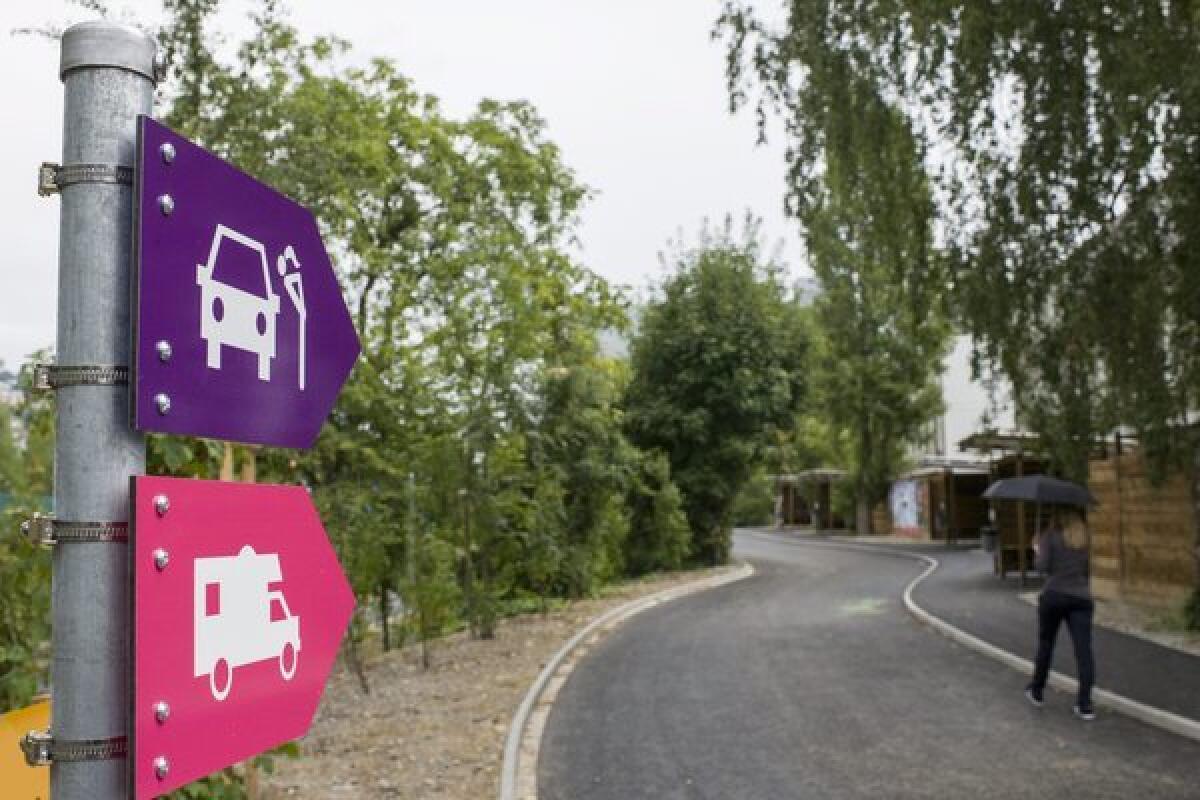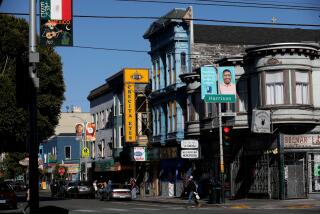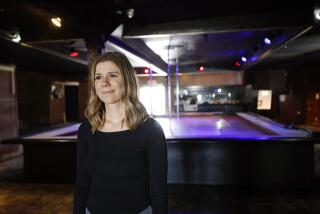Swiss open voter-approved drive-in ‘sex boxes’ to protect prostitutes

- Share via
Switzerland’s largest city on Monday launched a new dimension in drive-through services: prostitution.
City officials have built a cluster of garage-like “sex boxes ” in an effort to move the sex trade from central Zurich’s banking and business districts. A motorist in search of a tryst can troll past a sidewalk lined with licensed hookers and drive the one of his choosing to the relative privacy accorded by three wooden walls.
Prostitution has been legal in Switzerland since 1942, and the financial capital of the federation has long had an active flesh trade. Zurich officials and city business leaders led the campaign to create the new car-sex complex at the edge of town to better protect prostitutes and prevent their being drawn into drugs and other illegal activities that plague the urban center.
From 7 p.m. until 5 a.m., anyone with a car can cruise into the wooded park sandwiched between a rail yard and a freeway, negotiate a price with one of up to 40 prostitutes plying the sidewalk, and park in one of the nine tarpaulin-covered garages.
Zurich officials unveiled the new sex park to the media Saturday, praising the project that was built for $400,000 less than the voter-approved $2.6-million budget. In addition to the nine private parking sites, the venue includes bathrooms, shower facilities, a security alarm in each box and cafe tables set among trees strewn with lights.
The park was built to create a safe place for sex workers, “but we thought if we build the place, we can also make it look good,” Michael Herzig, of Zurich’s social welfare department, told the Associated Press.
To gain access to the new park’s sidewalk — or to legally ply their trade anywhere in the city — prostitutes must have a Swiss work permit, health insurance and a sex-worker license that costs 40 Swiss francs, or about $43, a year. They also must pay about $5.40 in taxes for each night they work at the venue.
The facility, approved by 53% of voters in a March 2012 referendum, is expected to also cost taxpayers more than $700,000 a year in security staffing and upkeep.
ALSO:
Deadly raid could derail Israeli-Palestinian talks
Snipers attack U.N. chemical weapons team in Syria
Snowden’s Moscow stay an accident, Russian paper reports
Twitter: @cjwilliamslat
More to Read
Sign up for Essential California
The most important California stories and recommendations in your inbox every morning.
You may occasionally receive promotional content from the Los Angeles Times.











